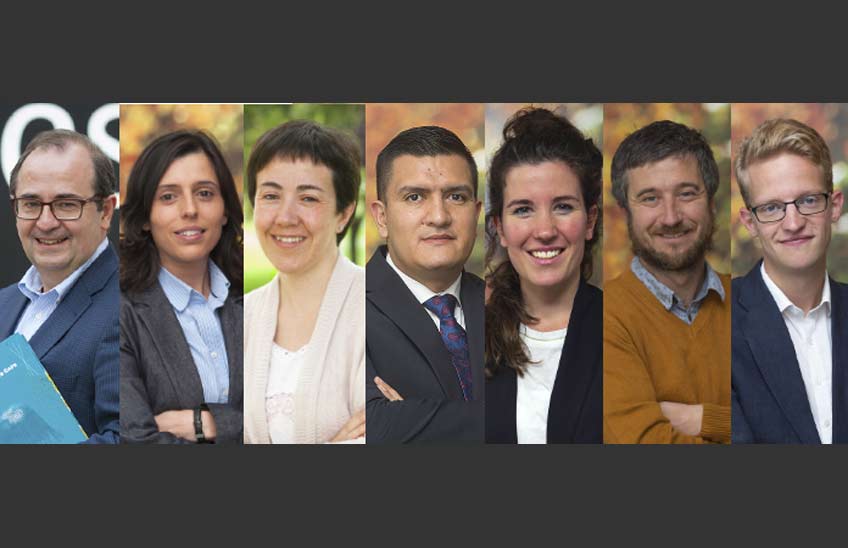The ATLANTES Program of the University of Navarra joins the network International Center for Palliative Care research
The network has 25 collaborators from Europe, North America and Australia and seeks to offer the best care to patients, especially cancer patients.

FotoManuel Castells/<br>Izda. a dcha. Carlos Centeno, Carla Reigada, María Arantzamendi, Miguel Sánchez, Alazne Belar, Eduardo Garralda, Danny Van Steijn.
11 | 02 | 2021
The group of research ATLANTES of the Institute for Culture and Society (ICS) of the University of Navarra has been invited to join the network European Network of Centers of research in Palliative Care, coordinated by the Oslo University Hospital of the University of Oslo (Norway). This invitation, materialized in the signature of a agreement, confirms the international recognition that the work of ATLANTES has reached, affirm the researchers.
The goal of this network is to offer the best care to patients, especially cancer patients, through a approach that focuses specifically on them and is based on scientific evidence. To achieve this, the aim is to cover the entire healthcare chain: to develop clinical programs of study to expand knowledge of best practices, systematize them in guidelines and, finally, implement this knowledge in the daily work of healthcare workers.
The research and activities developed in the 2020-2025 period will focus on patient-based care, as it considers research essential to improve the clinical internship . This idea is aligned with the 2025 strategy of the University of Navarra: a approach in the care of people, enhancing the research in personalized medicine, with special attention to end-of-life care.
According to Carlos Centeno, researcher principal of ATLANTES, "modern palliative medicine is active and person-centered medicine, attending to the needs and respecting the priorities and objectives of the patient". He considers that this way of working implies a change in the culture of care and that it will only be possible to establish it through the generation of new knowledge, as is the aim of this network. They will research on symptoms, emotions, families and care teams, focusing on biomedical aspects as well as from Humanities and social sciences.
The group of research ATLANTES of the ICS will thus join the 25 collaborating centers of the network which are located in Europe as well as in North America and Australia. The research of ATLANTES is structured around three lines: the 'Global Palliative Care Observatory', which seeks to monitor the globaldevelopment of palliative care; 'Intangible Values', which aims to explore the anthropological, historical and ethical aspects of discipline; and 'The Message', whose goal is to study a new conceptual framework to promote the real values of palliative care in both academia and society.
